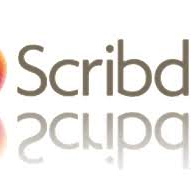On Wednesday, May 20, I was delighted to be in town for one of the Association of Authors’ Representatives‘ (AAR) monthly educational meetings, which are designed specifically for literary agents. Such a rare treat, since I’m not based in New York. May’s topic was subscription services (i.e. Scribd and Oyster) and whether such programs were good for authors.
I’m going to go out on a limb here and say yes, I do think subscription services are okay for authors—although I’m going to stop short of calling them “good” since these services are still too new, so the verdict is still out. I’ll tell you why, but first let me sum up the evening.
On the panel were four gentleman: Brian Murray (CEO of HarperCollins), Andrew Weinstein (Scribd), Mathew Shatz (Oyster), and Marc Ribot (Content Creators Coalition – Music Industry).
The panel tackled how the model works and why HarperCollins decided to come on board and make their catalog available in these services. And the reason? Because both Scribd and Oyster are paying a full book sale royalty to the Publisher (and then the Publisher pays the author his/her percentage) if a customer reads 20% or more of the actual book via the subscriber platform.
All of this info has already been covered in multiple Publishers Weekly and Publishers Lunch articles, so in essence, the evening didn’t necessarily present new information. Not to mention, since Oyster and Scribd are competitors, neither representative could be completely candid because of proprietary business practices. That, understandably, is going to limit the discussion.
Although I’m not sure the evening actually answered the question posed in the program heading, I did learn two valuable new things:
1) As Marc Ribot noted, this was not how subscriber services worked in the music industry, and had such a royalty set-up existed for this industry, things would be a lot different/better for musicians.
2) Neither Scribd or Oyster is designed for new, frontlist titles. If a new release was featured on the platforms, their systems would be overwhelmed by subscribers’ demands for the new release, and their budgets would be overwhelmed by their agreements to pay out full royalties.
The strength of the platforms is improving the discoverability of a backlist title (defined as having been published and out in the world for at least six months). In other words, demand for the title has leveled off, yet the title could still be discovered by a subscriber at no risk (as they pay a monthly flat fee for all-they-can-read).
That nugget of information finally made subscriber services and their value for authors click for me (along with Scribd addressing the issue of piracy via a robust spider-bot system that searches for illegally uploaded content).
For authors with a long career and extensive library of titles, this is just one more way to reach a reader—and get paid a full royalty, even if the reader does not finish the book.

